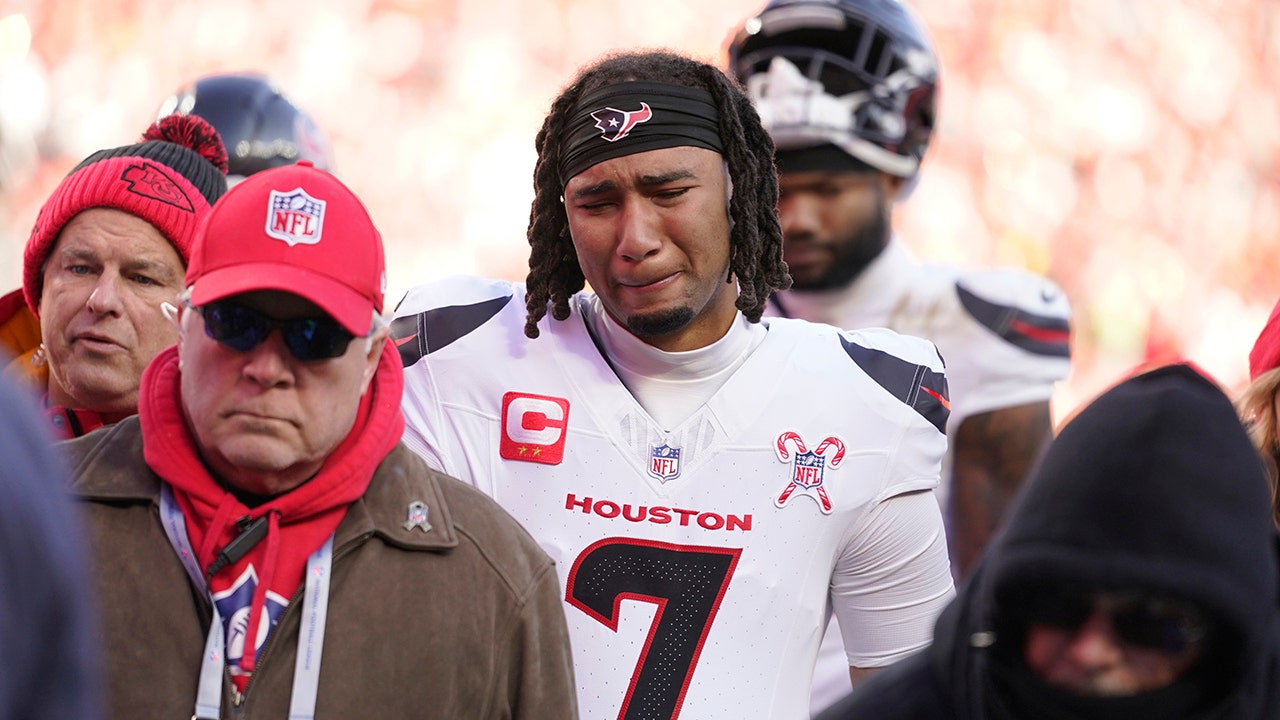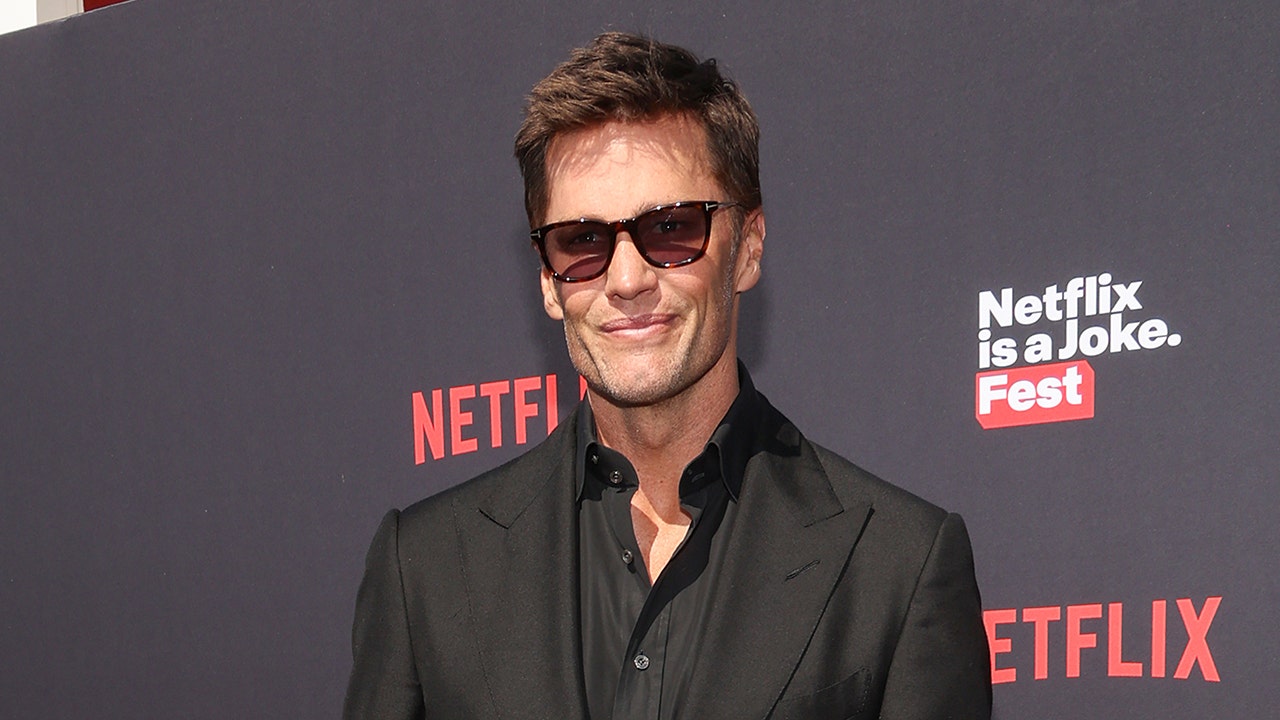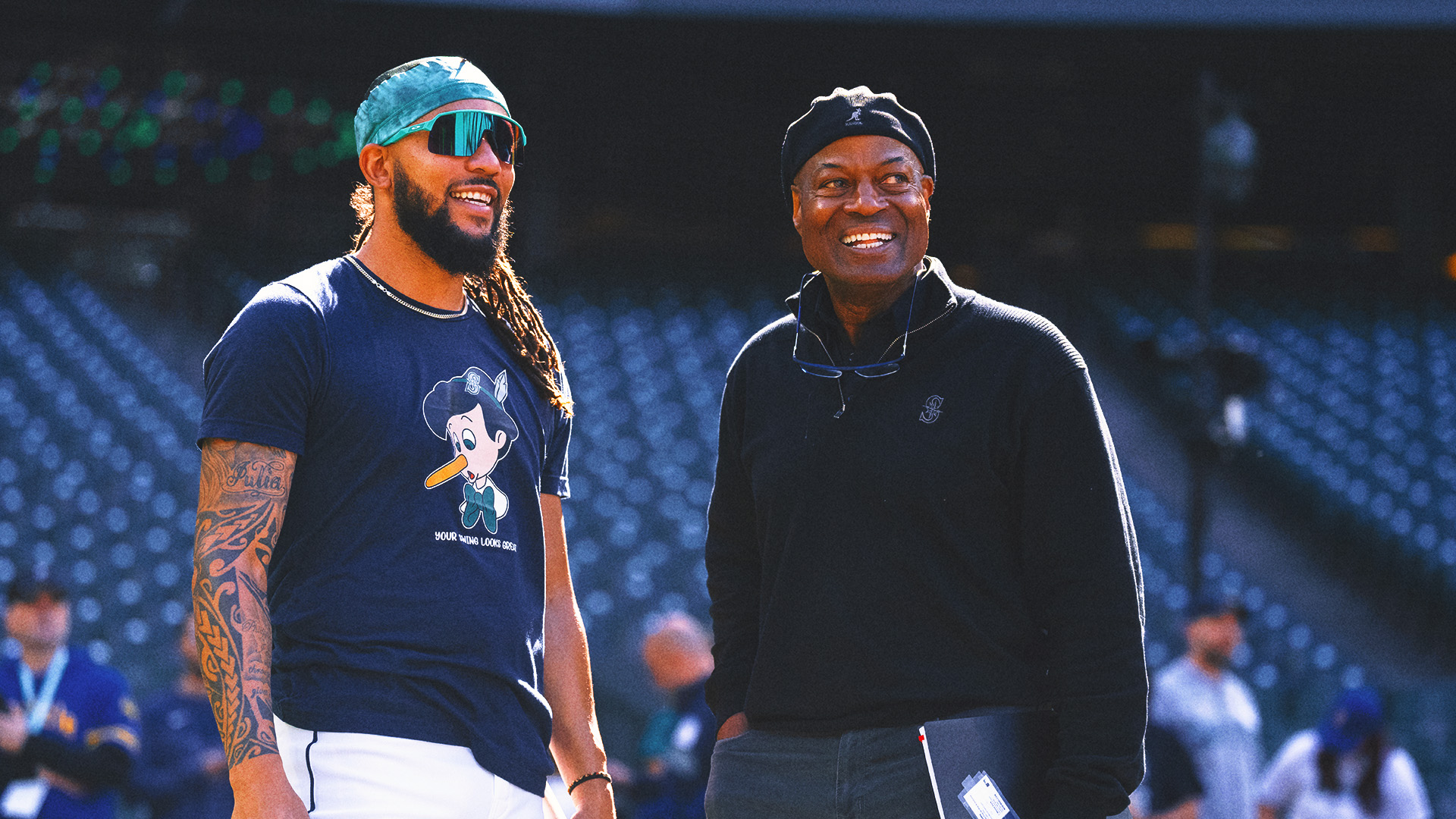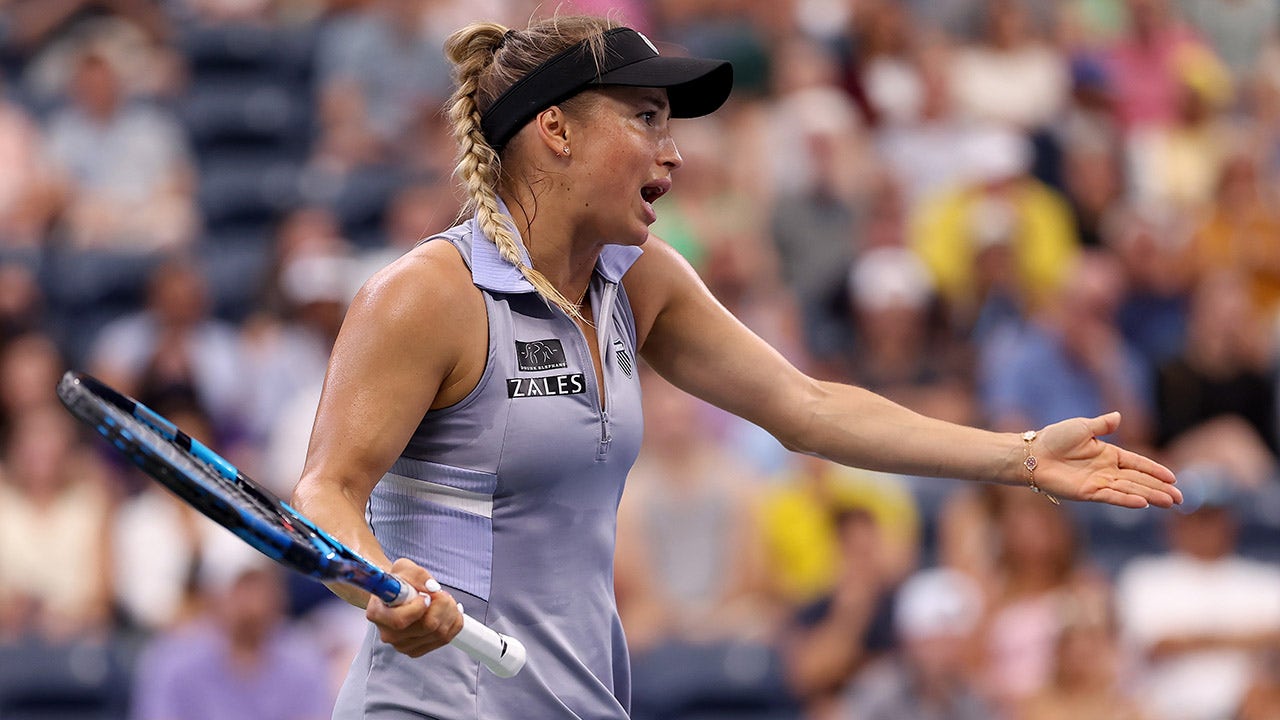Follow our Olympics coverage from the Paris Games. And follow live coverage of day two of the 2024 Paris Olympics, including dedicated gymnastics coverage
NANTERRE, France — Ariarne Titmus got to her lane first. Or so she thought.
She dropped her gear and outer layers into the assigned bin for Lane 4, and then she went over to check the sturdiness of the diving platform. After that, she slapped a few of her own muscles, making sure they were warmed up and ready to race. It was about to be the Race of the Century in women’s swimming, or something like that. That’s what everyone had said.
And then none other than Katie Ledecky herself walked up to Titmus and politely interrupted the warmup routine. Lane 4 was actually hers for this final. She’d edged Titmus in the morning prelims, so she got the top seed and that lane.
Titmus was — gasp! — assigned Lane 5. The second-best spot, just as easy to win from, of course. But not where she’d set up shop.
“I was like, ‘All good, all good,’ but she was freaking out,” Ledecky said later. “I didn’t want her to feel bad or anything. I joked with her before the medal ceremony that she was getting a little comfortable over there in Lane 4, but yeah, it was no big deal. I just didn’t want either of us to get disqualified for swimming in the wrong lane.”

Katie Ledecky informs Ariarne Titmus that she’s in the wrong lane ahead of Saturday’s women’s 400-meter freestyle final. (Maddie Meyer / Getty Images)
In Titmus’ defense, she usually is the top seed. She normally does get Lane 4, especially when it’s the 400-meter freestyle. She’s basically owned this event for the past five years; she hasn’t lost the race since 2019. And, by the time all was said and done Saturday night at La Défense Arena here at the Paris Olympics, she’d be a two-time Olympic gold medalist in the 400 free.
From Lane 5. She beat a field that featured two other women who had previously broken the world record in this event. One was Ledecky, who had won gold in the 400 free in Rio de Janeiro, silver in Tokyo and ended up taking bronze here Saturday. The other was Canadian teenage phenom Summer McIntosh, who broke Titmus’ world record last year before Titmus reclaimed it at world championships.
Titmus led wire-to-wire and touched the wall in 3:57.49, more than two seconds off her world record, but it was more than enough to win a race against the best the world has to offer.
“I’m relieved more than anything,” Titmus said. “I probably felt the pressure for this race more than anything in my life, to be honest. And I’m definitely good at handling the pressure, but I’ve definitely felt it. The Olympics is different. It’s not like anything else. It’s not about how fast you go. It’s about getting your hand on the wall first. So I’m really happy to have done that.”
Ledecky put on a smile and posed for all the photos she had to, first on the medal stand and then in various designated spots around the pool deck. She made sure to pull Titmus and McIntosh in for photos of the three of them together, because she knew they would capture the one who is now a veteran (Ledecky), the one who is in her prime (Titmus) and the one whose best is yet to come (McIntosh). She understood the significance of it all.
But she wasn’t happy with her own time. Ledecky didn’t even break the four-minute mark. She knew she could swim better and faster than that, but she didn’t Saturday night. And she doesn’t think it’s because the 400 free has passed her by; she still thinks she can win races of this length.

Katie Ledecky grabs a selfie with Ariarne Titmus and Summer McIntosh after Saturday’s 400-meter freestyle. (Tim Clayton / Corbis via Getty Images)
“I still feel like I have a lot to give in that race,” Ledecky said. “That wasn’t my best performance of the season, but I still was able to get a medal. So, I still feel like I have the ability to race that event. I don’t feel like necessarily I’ve put together the 400 that I’m capable of recently, but I know it’s in there. I know — I know what I’m capable of, it’s just a matter of putting it together.”
It sounded as if she was convincing herself, but everything she said is true. She did medal in an event that is the weakest one on a program that includes the 800- and 1,500-meter freestyles. She trains and swims the 200 free because she values the 4×200 free relay, and she loves to be part of a team.
But as a 27-year-old swimmer faces her own limitations — even one as immensely gifted and with an unimpeachable work ethic — these are the questions that come. Can I keep doing this? How much longer? Can I win?
Ledecky isn’t ready to face them just yet. She said she’s only focused on the week ahead and said she feels like she’s in a good place mentally for the races to come. But a few minutes later, she grew emotional.
Asked what it’s been like to train alongside some of Team USA’s best male distance swimmers at the University of Florida, she immediately choked up. She didn’t know why, but, understandably, it had been a disappointing race and a difficult day.
“It’s just a really special group, and it’s why I love this sport so much,” Ledecky said. “Knowing that I race these really fast boys every day, it gives me the confidence to go up next to really great racers. So, yeah, I love this sport so much I get emotional about it. And I love those people, and that’s what carries me through and keeps me going.”
It will be those same people who lift Ledecky up from a tough start here at the Paris Games. And they’ll be the ones she needs now, as she finds her place — and perhaps the right lane, too — as she moves forward. It’s a place she’s been before and one that’s totally new.

GO DEEPER
The great America-Australia relay rivalry gets another worthy chapter in Paris
(Top photo of Ariarne Titmus and Katie Ledecky after Saturday’s 400-meter freestyle: Maddie Meyer / Getty Images)






